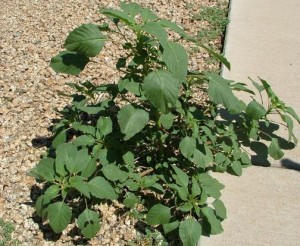The lecture by Joni Adamson on “Rethinking the Commons” was very intriguing. Adamson focused her lecture on what is considered “the commons” and how the word has changed drastically since it was first coined. “The commons” was first described as a type of resource or land used by the community but now in modern day use it is considered an overgrazed pasture. She described how environmental justice focuses not only on the environment but also social justice in literature. She explains how amaranth or pigweed is actually considered a very durable plant and has been quite resourceful for people during depressions. Adamson goes on to describe Monsanto, a corporation known for its agricultural biotechnology and its production of genetically engineered seeds.
Category Archives: Pastoral
The Rattling Fitchburg Railroad Interrupting Revelation
The chapter “Sounds” from Walden highlights the Transcendental motif of revelation and spiritual elevation through direct experience with nature instead of through tradition, as represented by books and literature. As the chapter progresses, Thoreau’s serenity, spiritual elevation and reverence is interrupted by the railroad which after much contemplation, becomes a metaphor for civilization, commerce, and economic drudgery. The railroad becomes an opposing force, a reoccurring interruption that’s piercing whistle interrupts the pastoral transcendental life Thoreau is leading at Walden Pond.
Thoreau dives straight into revelation by direct experience in the opening of “Sounds”. “I did not read books the first summer; I hoed beans”(Thoreau 97). Instead of reading, Thoreau sits serenely, after a morning bath in his doorway contentedly observing the serenity of his garden, noticing the sunlight and listening to the chirping of birds. “Sometimes in a summer morning,having taken my accustomed bath, I sat in the sunny doorway from sunrise till noon, rapt in a revery…in undisturbed solitude and stillness, while the birds sang around…” (Thoreau 97)
Cultivation is Education
Attempting to create a successful education system in Colonial America was exceedingly difficult. The main reason being that the colonists were more concerned with finding a way to stay alive than educating their children in the way that we do today. In fact, the reason that so many of them were literate in the first place was because of religion. The colonists, especially the individuals in the Northern colony, wanted everybody to be able to read so they could understand the Bible. This is basically the reason why an education system was considered to be a very important addition to the colonies.
However, as stated above, the will to live was much more important to them, which is why it took until the 19th century for schools to spread across the United States. Yet, the children at this time had the chance to learn a different type of education. From their parents they learned about cultivation, agriculture, and the willingness to work. In fact, it was believed that since there was an abundance of land, if a man was willing to work hard to make a living, and with a little luck, he would succeed. It was common to think that if a man was impoverished, or poor, it was because he was lazy. There were so many rich resources available to every working man, that learning how to use it was necessary. This was ultimately what education was in the very beginning, it was learning how to work the land successfully.
Advertising and the environment: videos from class
If you are interested in taking another look, here are the videos we watched in class on Thursday. Stories, metaphors, and images of the environment often come to seem deceptively transparent through long usage. It is our job as literary and cultural analysts to uncover how they are working and to make them strange again. And if you watch these commercials enough times they definitely start to seem really strange. Kids dressed up as trees and flowers blowing in the wind. Making garbage disappear simply by holding a beautiful poster in front of it. A car that transforms into animals in order to navigate a rugged landscape. Weird stuff! Environmental and literary tropes — like the sublime, the pastoral, harmony or the ecological web, and wilderness (see the Buell glossary of terms for explanations of these) — are everywhere; you just have to keep your eyes open for them. Where do you see them in your day to day lives?
http://www.youtube.com/watch?v=FHZRJpeOe8w

